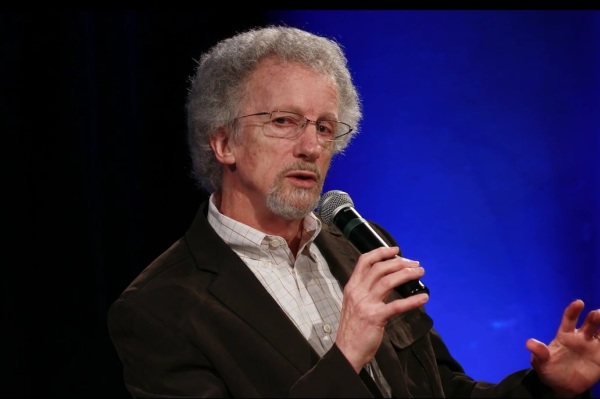An eternal perspective on financial management

Having an eternal perspective shapes our earthly approach to all aspects of financial management, or stewardship. A steward, as you may know, is a trustee or a manager — one tasked with managing resources belonging to someone else. In our case, the Bible tells us that God is the owner of all wealth (Haggai 2:8). King David stated it in another manner in Psalm 24:1a, “The earth is the Lord’s, and everything in it.”
That means that every asset on every balance sheet legally and irrevocably belongs to him, regardless of the account title. This is a spiritual reality that supersedes the laws of man.
Despite our lack of ultimate ownership of (His) financial resources, God, in His grace, gives us a meaningful job and purpose, lovingly incorporating us into His grand design as stewards on his behalf.
He allots resources to each of us to manage on His behalf, as His stewards. The Parable of the Talents in Matthew 25 implies that God gives an amount to each of us according to our ability. (The good news is that all of us can grow our ability!)
Apprenticing in the Family Business
God, of course, doesn’t really need our help at all. He knows no lack that He should be dependent on us to first multiply His wealth so that He might achieve His goals. (In fact, I would presume that God doesn’t even have financial goals.)
But rather, as a parent tenderly invites a young child to “help” with tasks around the home or shop, He invites us into the task of managing His resources for our benefit, not His. He uses stewardship tasks and financial circumstances to train, equip, and edify us, as well as to invite us to trust more completely and connect with Him more deeply.
Through stewardship, He grows our skills and understanding of his principles. But even more precious, if we will seek him with our hearts, He also uses stewardship to increase our capacity to think as He thinks and feel as He feels. Our Father uses our stewardship journey as an apprenticeship program to teach us the family business of bringing heaven into the earth. (If this sounds crazy to you, check out the Lord’s Prayer, especially Matthew 6:10)
The Owner is a Giver
I like to imagine that His heart and intentions in giving these gifts to us are like those of a parent who gives a set of paints or tools to a child, joyfully anticipating what the child will create. He is, after all, our Father and the Giver of every good gift.
He entrusts us with a measure of His financial resources, as well as with other resources: opportunities, time, relationships, energy, abilities, and more. Then He watches and waits with great expectancy to see what we will choose to create with all that He has given to us.
The best way to honor the Giver and the gift, is to use the resources to create something that the Giver would absolutely love. This leads us to ask ourselves some important questions to ensure our financial strategy is headed in the right direction.
Questions Every Steward Must Answer:
- What potential uses of the money do we think would delight God’s heart?
- What will we do with all the resources He has entrusted to us?
- How much should be given away, stored up as treasure in heaven? Where should it be given?
- How much of it should be invested and in what types of products? (Does God care how we invest?)
- How much is okay to spend on our lifestyle and enjoyment?
Interestingly, these questions are the very foundation of Christian financial planning, a process that can be not only extremely practical, but also one that can have eternal significance for those who long to hear the Master say, “Well done, good and faithful servant.”
If we’re honest with ourselves, we could all be more intentional with God’s money. It’s easy to stay in familiar patterns, avoid accountability, and resist spending money on professional advice that could help us objectively and wisely answer these important questions and make focused financial decisions.
It’s also easy for us to feel that our finances are somehow disconnected from our spiritual lives. But as author, Ron Blue, has insightfully stated, every financial decision is a spiritual decision or has it’s root in a spiritual value. I’ve seen this principle displayed in my own life and in the lives of my clients. But here’s the best part.
He gives us His heavenly wisdom and guidance when we ask for it, but He doesn’t control us or micromanage our assignment. He is not afraid of the mistakes we will surely make as we learn how to manage His money. In fact, I’ve seen him allow his children to make some very expensive mistakes…and I’m guessing He didn’t lose any sleep over it. While there are Biblical principles we can apply (or reject), I believe He cares most about what’s happening in our hearts.
If you’re ready to take a more focused and intentional look at your stewardship, I would encourage you to consider taking one or more of the following steps:
1. Find a Certified Kingdom Advisor™ that you can connect with, either locally or virtually. In light of the pandemic, many advisors have become proficient at communicating with clients through user-friendly technology (video calls, encrypted emails, and screen-sharing to walk through a meeting agenda or share visual aids). I think it’s more important to connect with the right advisor for you than to connect with one whose office is nearby.
Certified Kingdom Advisors, specifically, have been vetted for minimum standards of professional training or competence in financial planning, plus have taken a lengthy educational program to ensure they rightly understand all areas of personal finances through a Biblical lens. They are uniquely qualified to serve Christian clients. If you’re serious about investing God’s money according to His values, be sure to request faith-based investment strategies as many of them are not well-versed in this particular sub-set of Christian financial principles.
2. Develop a personal practice of listening for God’s voice and seeking his guidance. Whether or not you choose to seek professional advice, this is the most important step you can take. Christian teachings that focus on finances, such as the books and videos by Randy Alcorn, Ron Blue, and others can be a great resources to get started. But don’t forget to pray about your financial decisions, and then listen for his still, small voice, recognizing that He often speaks to us through our own conscience and the peace we experience as we do our best to follow him.
God loves to meet us on the path of our stewardship journey. Just as the Father welcomes back the prodigal son, God longs to embrace us and help us despite any past mistakes we might have made with his money. There is no condemnation in his eyes. He is for us. He is highly relational. He wants to mentor us and co-labor with us in this job that He created just for us.
Rachel McDonough is a Certified Financial Planner™ professional and a Certified Kingdom Advisor. She is passionate about helping both investors and other financial advisors integrate their Christian values into their investment and financial decisions. Rachel founded Make Your Money Count, LLC with the goal of helping Christian investors create investment portfolios that advance kingdom values while providing income and growth for retirement.





















